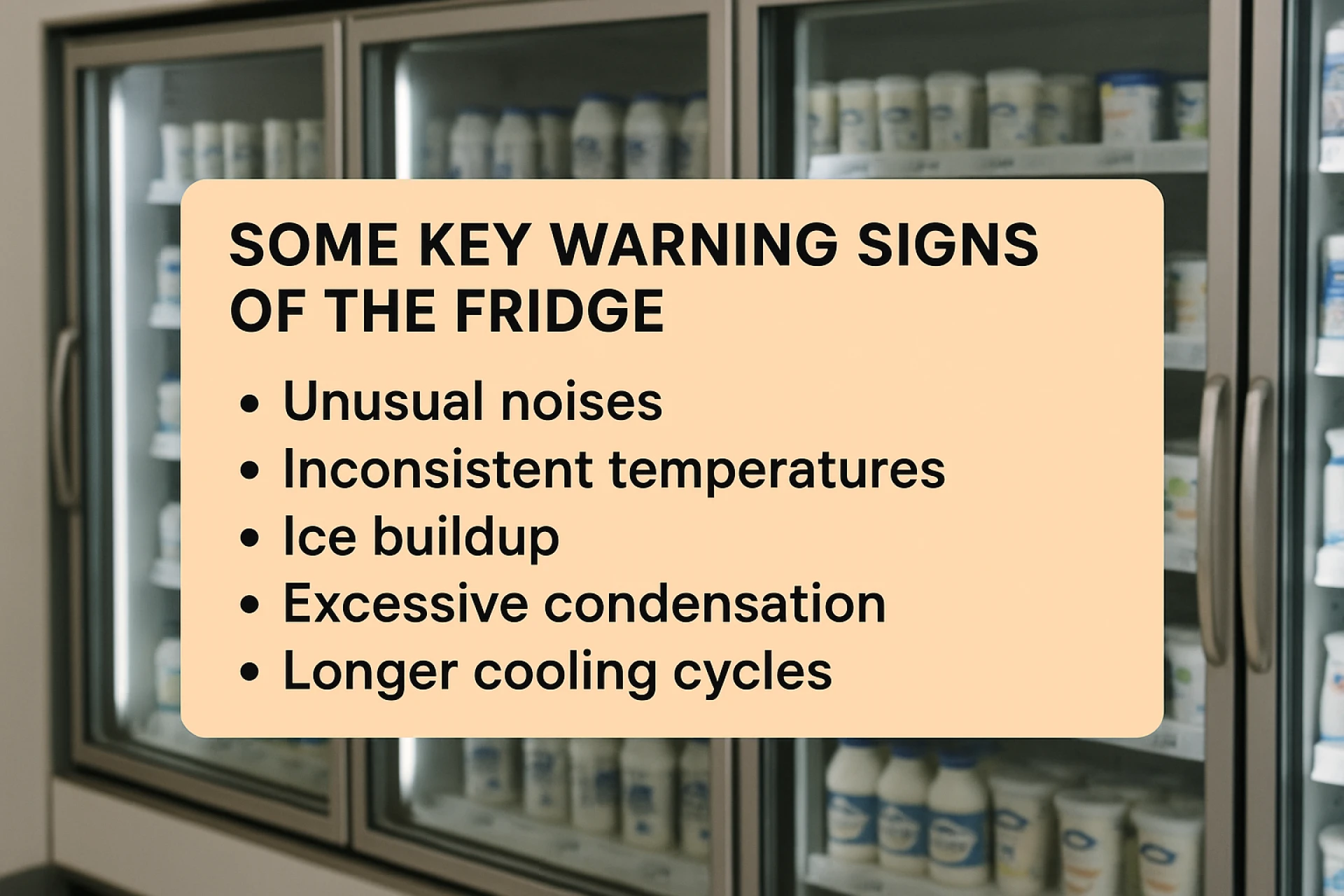In the fast-paced world of hospitality and retail, a broken fridge isn’t just an inconvenience — it’s a business threat. Whether you're running a corner café in Newtown, managing a medical centre in Blacktown, or operating a seafood restaurant in Darling Harbour, refrigeration is central to your daily operations. When it fails, your entire workflow is thrown into chaos.
I remember chatting with a bakery owner in Marrickville who discovered her display fridge had stopped working overnight. By morning, dozens of cream-filled pastries were spoiled, and she lost not only a day’s worth of income but the trust of a handful of regulars. That one incident sparked a major rethink in how she handled maintenance and repairs going forward.
In cities like Sydney, where competition is stiff and customer expectations are high, prioritising industrial fridge repair isn't just smart — it's survival.
The tell-tale signs your fridge is about to fail
Commercial fridges don’t often break down without warning. More often than not, they exhibit small issues that gradually escalate. If you’re attentive, you can catch these signals before disaster strikes.

- Unusual noises: Clicking, buzzing, or humming sounds can indicate compressor problems.
- Inconsistent temperatures: Food not staying cold? That’s a red flag for thermostat or refrigerant issues.
- Ice buildup: This might suggest a defrost problem or faulty door seals.
- Excessive condensation: Foggy glass and water pooling may indicate poor airflow or seal degradation.
- Longer cooling cycles: If your fridge is working overtime, something’s off internally.
In many of the businesses I’ve worked with, these symptoms were dismissed as quirks — until the fridge shut down during a rush period. Paying attention early can help you act before a breakdown turns critical.
Regular repairs: Not just functional—they’re required
Refrigeration problems aren’t just about lost stock or inconvenience. In Australia, they can quickly become legal liabilities. Businesses that handle food or pharmaceuticals are held to high safety standards, especially when it comes to cold storage.
Under the NSW food safety standards, perishable food must be stored below 5°C. A faulty fridge that fails to meet this requirement isn’t just inefficient — it’s non-compliant. This can lead to heavy fines, mandatory inspections, or temporary shutdowns.
That’s why even small faults should never be ignored. I know one butcher who had a fine reversed because he could show an active repair log, temperature check records, and evidence of scheduled maintenance. Compliance saved his reputation — and potentially, his licence.
What to look for in a Sydney fridge repair technician
The success of your fridge repairs depends largely on who you hire. And in Sydney, where there’s no shortage of tradies, finding the right technician for commercial refrigeration is more complicated than it looks.
Here’s what to vet before you commit:
- Industry experience: Do they specialise in commercial systems like cold rooms, prep fridges, and display units?
- Emergency availability: Can they attend after-hours or on weekends?
- Parts access: Do they carry common replacement parts to avoid long delays?
- Licensed & insured: Are they qualified to handle refrigerants safely and legally?
- Clear pricing: Do they offer transparent quotes, or do they "estimate" and sting you later?
It helps to build a relationship with a tech before things go wrong. That way, when you’re in a pinch, you’re not scrambling through Google Reviews hoping for a miracle.
Maintenance is cheaper than emergency call-outs
While it’s tempting to skip scheduled maintenance to save a buck, this almost always costs more in the long run. A proactive maintenance schedule dramatically reduces the likelihood of urgent breakdowns and extends your unit’s working life.
Basic things you or your staff can do monthly:
- Wipe down door gaskets: Prevents warping and cracking
- Vacuum coils and vents: Stop dust from clogging the airflow
- Monitor temperature logs: Catch drops or spikes early
- Clear drain lines: Reduces odour and overflow issues
And at least once or twice a year, book a professional inspection. It’s during these checkups that techs often uncover refrigerant leaks, compressor strain, or wiring issues — all of which can quietly destroy a fridge if left alone.
Backup planning: Don’t wait until it’s too late
One thing I always recommend to clients is having a breakdown plan in place because even the most diligent businesses get caught off guard.
Ask yourself:
- Do you have a preferred technician to call?
- Is there a backup fridge or freezer on-site?
- Can you reroute stock to a second location?
- What’s your spoilage policy?
- Does your insurance cover lost goods due to power or equipment failure?
I worked with a florist in the Inner West who leased a portable cool room during their peak summer season, just in case. That bit of planning paid off big when their main cooler failed the day before a 30-degree heatwave.
Even simple measures like an ice chest, backup power, or a close relationship with a neighbouring business can save your stock — and your sanity.
How preventative strategies improve your bottom line
Fixing problems early is good. Preventing them altogether is even better. Businesses that invest in preventative care save money long-term and avoid the “drama factor” of emergency repairs.
Preventive maintenance helps in:
- Energy savings: Well-maintained units use less power
- Product integrity: Consistent temperatures = less waste
- Staff confidence: Fewer disruptions mean smoother operations
- Brand reputation: No one wants to be known as “the place that served warm milk.”
Fridge failure isn’t just about food — it’s about trust
Customers won’t always know when your fridge is broken — but they’ll know when their drink is warm or their sandwich is off. Refrigeration failures are silent business killers.
As someone who’s seen dozens of local Sydney businesses recover from fridge breakdowns (and a few who didn’t), I can tell you this: preparation beats panic every time.
Here’s what I tell every client:
- Get your maintenance sorted.
- Build a relationship with a trusted fridge tech.
- Know your legal requirements.
- Have a backup plan.
- Don’t wait for disaster — expect it, and be ready.
Because at the end of the day, a fridge isn’t just an appliance — it’s a pillar of your business.



